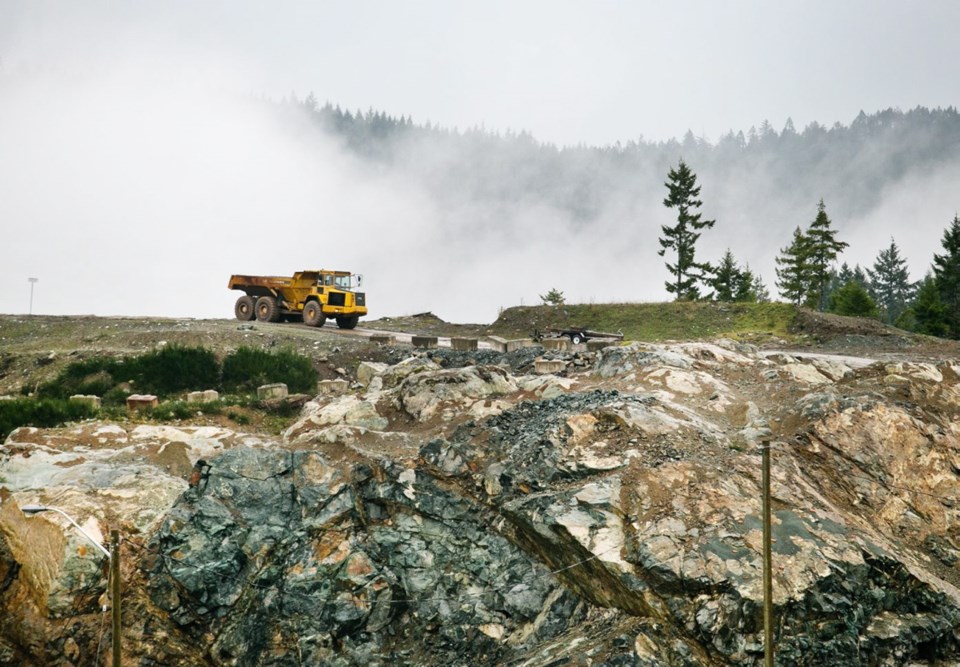 The specific reason for the B.C. government’s reversal on the contaminated-soil site above Shawnigan Lake is the operating company’s failure to come up with more money for a type of security bond.
The specific reason for the B.C. government’s reversal on the contaminated-soil site above Shawnigan Lake is the operating company’s failure to come up with more money for a type of security bond.
More generally, it’s a case of the light finally dawning. The Environment Ministry spent years arguing about the engineering aspects of dumping contaminated soil above a source of drinking water with a community determined to stop it. The ministry’s view was that it was safe, subject to constant, close-up monitoring of the operation.
Environment Minister Mary Polak initially tried to stay above the fray, insisting the permit was issued entirely on technical merits. As that monitoring progressed, the company started lagging in responding to all the demands made by the government.
Then in an entirely separate venue, the ministry watched a Supreme Court justice scrutinize the conduct of the company through the permitting process, and declare that it fell well short.
Even before the verdict to that effect, Polak was repositioning herself as an increasingly skeptical regulator of the project. She started last year issuing more stringent performance demands, with tighter deadlines for compliance.
When the company failed a key one, the hammer came down this week. The permit was cancelled, the site is shut down, subject to any appeal the company might file, and the community (95 per cent against the idea by Polak’s own reckoning) is celebrating an epic victory.
The government says the company brought this on itself by repeatedly failing to comply with ministry directives. But the community’s campaign against the whole concept was very much in the background and contributed to the tougher stance the government eventually adopted.
The residents didn’t exactly overturn the permit and shut down the site. But they set the stage for the ministry to do so. Would the compliance requirements have escalated to the point they did if there hadn’t been constant agitation and attention paid? Unlikely.
It’s not every day a group of citizens can contribute to such a degree to a major reversal like this one. It’s the first time a B.C. environment minister has ever exercised such powers.
Allowing someone to dump tonnes of contaminated soil on a hillside above a lake surrounded by homes sounds to the ordinary person like an inherently dumb idea. But modern-day engineering routinely works miracles. On paper, engineers can do almost anything. It looks as if the ministry fell under the spell of confident engineers who guaranteed they could beat anything, even gravity.
That engineering report was found by the court to be compromised by the fact the firm that wrote it had an undisclosed equity share in the project. The judge also found the company gave false and misleading evidence about that deal. That isn’t the key reason operation is now shut down. But it didn’t help.
Polak said it was “terribly concerning.”
Her formal notice to Cobble Hill Holdings this week emphasized the “closure and post-closure activities necessary to deal with contaminated soil that has already been discharged at the site.”
It’s unclear at this point what “deal with” means exactly.
In the two years the site operated, 100,000 tonnes of contaminated soil were dumped. Residents, of course, want it all removed, but Polak said it depends on what ministry staff conclude is needed. “All contaminated soil is not created equal, so the appropriate treatment … will be determined in conjunction with the work that our staff will do.”
The cleanup costs are also unclear. The company’s estimate of such a cost was called inadequate by the ministry.
Who pays is another open question. The government has an assurance the company has access to about $220,000 for remediation. But it’s unlikely that’s enough, given that the ministry asked for more.
It didn’t get it, which led to the permit being yanked.
The government is always responsible for taking action when a proponent can’t or won’t. But Polak said the company has a legal obligation, and the government has been successful elsewhere many times in court in enforcing that.
Still, there’s a chance taxpayers will be on the hook. Costs in these sorts of cases are like the water off the hillside. They always flow downhill.



